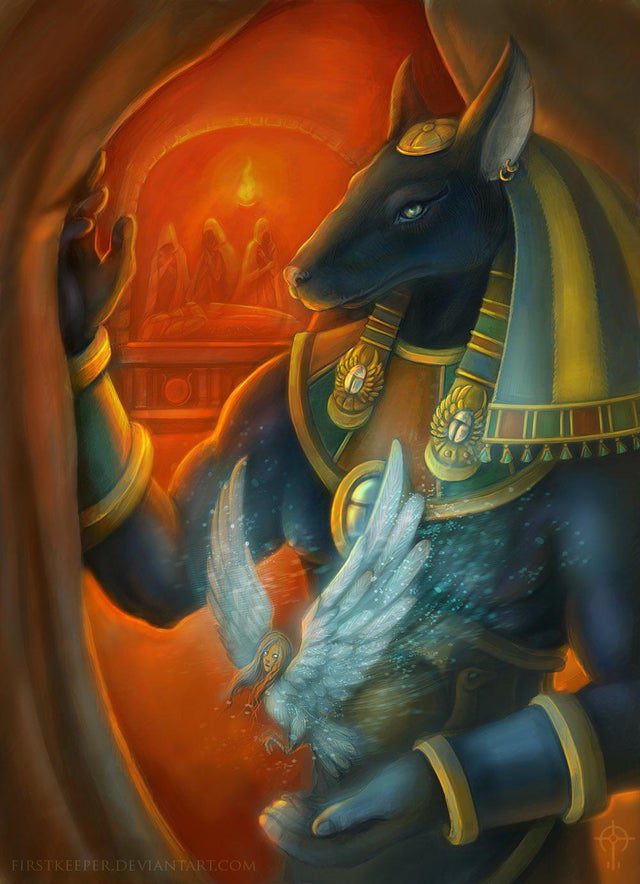Anubis and Hades are two mythological figures closely associated with the afterlife in Egyptian and Greek mythology, respectively. Anubis is primarily responsible for guiding the souls of the dead through the underworld, ensuring their purity before allowing them to pass into the afterlife. In contrast, Hades is responsible for judging the spirits of the dead and keeping them in the underworld. Additionally, Hades has subordinates, such as the ferryman Charon and the three-headed dog Cerberus. Anubis is depicted with a jackal head and a compassionate demeanor, while Hades is portrayed as dark and unyielding. Despite their differences, both gods offer insight into the complex beliefs and values of their respective cultures.
Anubis vs. Hades: Unraveling the Powers of the Mythological Afterlife
Introduction
For over thousands of years, civilization has been fascinated by the concept of life after death. Many mythological traditions have focused on the afterlife and the deities associated with it. Among them, the Egyptian and Greek mythologies serve as examples of the sophisticated beliefs about the afterlife that developed over time. The Egyptian god Anubis and Greek god Hades are two of the most well-known figures in their respective mythologies that are closely associated with the afterlife. However, their powers and roles in the afterlife are vastly different. In this article, we will explore the characteristics and powers of Anubis and Hades, and what they represent in their mythologies.
Anubis
Anubis is one of the ancient Egyptian gods, and he is best-known as the god of the dead. He was also the god of mummification and embalming, and his presence was especially important during the funeral rites of ancient Egyptians. Anubis was depicted with a canine or jackal head, and he was often shown wearing a black robe or coat, which symbolized his association with death.
Anubis played a key role in the afterlife of ancient Egyptian mythology. According to their beliefs, Anubis acted as a guide to the souls of the deceased through the underworld. He was responsible for ensuring that the soul of the deceased was pure and had no evil deeds to weigh them down. In particular, the heart of the deceased was weighed against the ‘feather of truth,’ and if the heart outweighed the feather, the soul was not allowed to pass to the realm of Osiris, the god of the afterlife. If Anubis deemed the soul to be pure, he would help the soul to cross over to the afterlife.
Hades
Hades was the ancient Greek god of the underworld and the dead. He was the brother of Zeus and Poseidon, and his realm was where the spirits of the dead went after their lives on Earth ended. Hades was often portrayed as a dark, brooding figure who was fiercely protective of his domain. Due to his role as the ruler of the underworld, Hades was also associated with wealth and earth’s minerals.
According to ancient Greek mythology, Hades was tasked with judging the spirits of the dead who came to him. He held a scepter, and anyone who touched it would be unable to leave the underworld. The underworld was divided into several levels, and Hades had subordinates such as Charon, the ferryman who would ferry the souls across the river that separated the living world from the underworld. Cerberus, the three-headed dog, guarded the gates of the underworld.
Comparing and Contrasting Anubis and Hades
While both Anubis and Hades are gods associated with the afterlife, they have very different powers and responsibilities. Anubis was specifically responsible for guiding souls through the underworld and weighing their hearts against the feather of truth. On the other hand, Hades was responsible for judging the spirits of the dead and ensuring that they remained in the underworld. Hades also had subordinates that helped him carry out his tasks, while Anubis acted alone in his duties.
Another significant contrast between Anubis and Hades is their depictions. Anubis was represented with the head of a jackal, while Hades was described as having a dark, fearsome appearance. Furthermore, Anubis was often portrayed with a compassionate demeanor, while Hades was unyielding in his judgments and could even be seen as merciless.
Conclusion
The afterlife myths of ancient Egyptian and Greek cultures are complex and intriguing. The gods of the dead in these mythologies, such as Anubis and Hades, have continued to fascinate humans over the centuries. While both gods were associated with the afterlife, their roles and characteristics were very different. Anubis was primarily responsible for guiding the souls of the dead through the underworld and ensuring their purity, while Hades was responsible for judging the spirits of the dead and keeping them in the underworld. Despite their differences, both gods play a significant role in understanding the beliefs and values of the cultures that created them.
